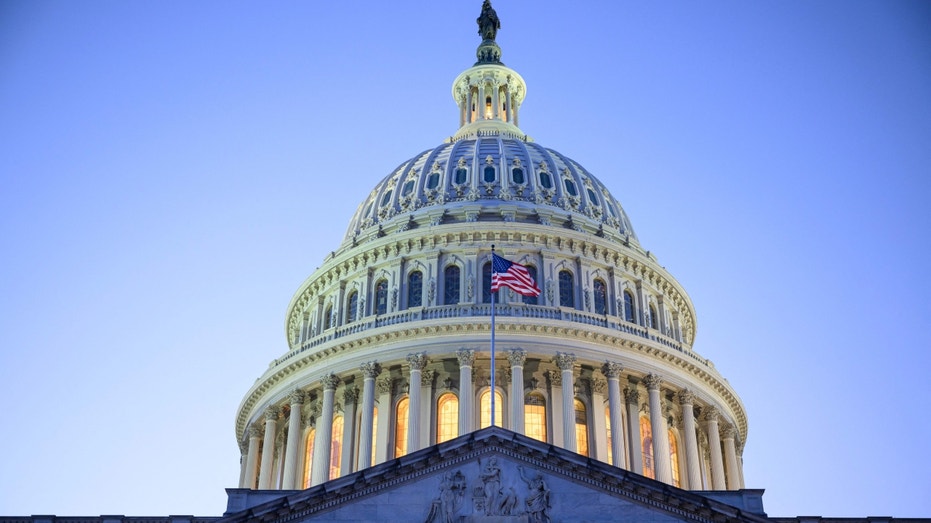Sen. Ron Johnson, R-Wis., discussed a government shutdown that jumped Congress with securing a spending bill.
There is a risk of a stalemate hitting the United States Loan limit Republicans in Congress are working on a majority in the House of Representatives, Fitch Ratings warned in a report on Tuesday.
“Given already large deficits and a growing debt burden, the United States faces significant policy challenges in 2025 in terms of debt ceiling, appropriations and tax cuts.” Fitch wrote. “We think that the debate over whether to raise or suspend the debt ceiling is unlikely to be resolved until early 2025, given significant disagreements over spending policy in Congress.
Fitch explained
Congress recently extended the debt ceiling through 2023, when Financial Responsibility Act Suspended the debt limit through January 1, 2025 and imposed a spending cap on discretionary spending. It will likely have to act on a new increase or moratorium on the debt ceiling this spring or summer to prevent the federal government from defaulting on its debt.
The US national debt hit a new record: $36 trillion

Fitch estimated that Congress would need to act on the debt ceiling by July or August to prevent the federal government from defaulting on its debt. (AFP/Getty Images)
Earlier this month, the Department of Treasury The new debt ceiling is expected to become binding between Jan. 14-23 — prompting the agency to use accounting techniques known as “extraordinary measures” to avoid a default and fund federal obligations for several months until those tools expire. .
That's clearly how long those are Excellent arrangement will last, but Fitch analysts wrote that they believe the “X-date” could fall as late as July or August, giving lawmakers several months to tackle the debt ceiling.
The federal deficit is approaching $2 trillion and getting worse, experts warn
In addition to the debt limit, Congress must pass a Government Fund Bill A partial shutdown could be avoided by enacting a short-term continuing resolution or appropriations bill by March 14.
That debate could include discussions on increasing discretion Cost cap That expires in September, and could happen against the backdrop of negotiations over an extension of the 2017 tax cuts that Republicans plan to follow through the budget reconciliation process.
The reconciliation process allows tax and spending-related legislation to bypass the Senate's 60-vote legislative filibuster and pass with a simple majority vote as long as the bill complies with special budget rules. Even with that option available, getting legislation through that process with a thin House majority would be a challenge for GOP leadership.
House Republicans won 220 seats in the November election, giving them a five-seat majority over the Democrats. However, those positions have been thinned after the resignation of former Rep. Matt Gaetz, while two other GOP lawmakers have assumed roles in the incoming Trump White House.
The departures of these lawmakers will leave their seats temporarily vacant until special elections are held for their successors — leaving Republicans with just a two-seat majority in the interim.

House Speaker Mike Johnson, R-La., will have to deal with a thin GOP majority as Congress faces several fiscal policy issues. (Getty Images/Getty Images via Eva Marie Uzcategui/Bloomberg)
Get Fox Business on the go by clicking here
Fitch wrote that these dynamics “could lead to a busy period in the summer as policymakers try to finalize appropriations bills, reach agreement on raising or suspending the debt ceiling before the Ex-date and extending the 2017 tax cuts.”
“Our base-case assumption is that these issues will be resolved. But the absence of a unified budget process and the upcoming policy debate over additional tax cuts and spending adjustments amid a still-challenging political context mean important decisions are likely. An ad hoc, issue-by- On an issue-by-issue basis, recent years emphasize the deterioration of the US's governance of fiscal matters,” Fitch explained.